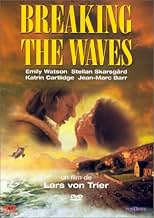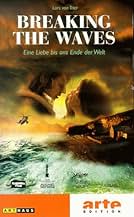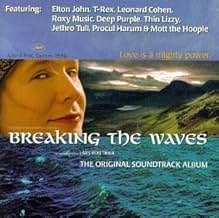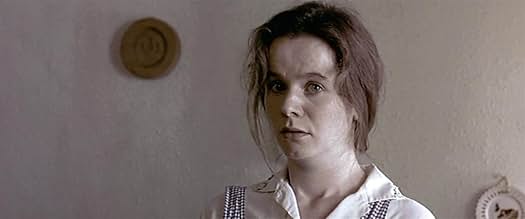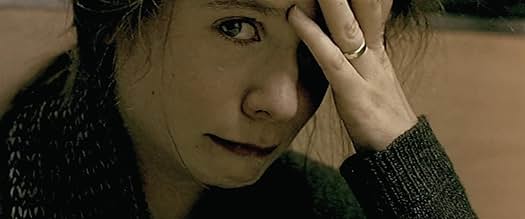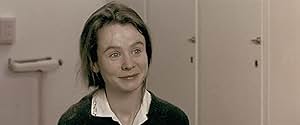Oilman Jan is paralyzed in an accident. His wife, who prayed for his return, feels guilty; even more, when Jan urges her to have sex with another.Oilman Jan is paralyzed in an accident. His wife, who prayed for his return, feels guilty; even more, when Jan urges her to have sex with another.Oilman Jan is paralyzed in an accident. His wife, who prayed for his return, feels guilty; even more, when Jan urges her to have sex with another.
- Director
- Writers
- Stars
- Nominated for 1 Oscar
- 45 wins & 28 nominations total
Finlay Welsh
- Coroner
- (as Finley Welsh)
- Director
- Writers
- All cast & crew
- Production, box office & more at IMDbPro
7.875K
1
2
3
4
5
6
7
8
9
10
Featured reviews
8sol-
My brief review of the film
A film about love, faith, religion and many other things, it is a draining experience but yet fascinating to watch, with superb acting and an intriguing main character. It is surprising how gripping the film is, as it is difficult to watch, not just because of the subject matter, but also because of its style. Made by the conventions of Dogme '95, the film has many extreme close-ups, generally shaky camera-work and errors in continuity for editing and audio levels, all of which is supposed to amount to a film that looks and feels more realistic. With this film though, the quality of the acting and writing provide enough realism alone, and therefore the style serves no purpose other than to make the film more difficult to digest. It is an incredibly long film, and while this is not too much of a problem, the chapter markers are noticeably long without much reason either. Still, the film comes through despite its detracting bits. Watson, in her first film performance, is excellent, and Cartlidge provides great support. This is not an easy film to watch and like, but it is easy to admire what is done well in the film.
Unforgettable
Lars von Trier's Breaking the Waves is the kind of film that makes me proud to be a film-goer and exceeds anything I could have possibly expected from the man who made Element of Crime. That film had some clever experimentation (and so does this one) but this film is the kind that's beauty and power echoes in your mind hours after you've watched it. This is a flabbergasting work of art that portrays a woman's quest to please God and does so with the complexity and emotional power of a Bergman film (not to mention the fact that the film portrays a woman's intense suffering in world sternly ruled by men with the power of a Dreyer film). If von Trier made nothing else of any merit for the rest of his career, if all he did was make marginally interesting film experiments, I wouldn't hesitate to call him a great filmmaker on the soul basis of this film. Anyway, you get the picture
The film stars Emily Watson as Bess, a shy and neurotic girl who is filled with joy to be with her new husband Jan (Stellan Skarsgard who is exceptional). When Jan is paralyzed after an accident at the oilrig he works in, he is in danger of losing his life. He convinces Bess to see other people and Bess wants nothing more than to make him happy and to prove to God that she loves him. After some disastrous complications, Bess is led to believe that she can please God and save Jan's life by having numerous sexual encounters with strangers in town. This sounds like a grungy tale, but von Trier tells it with such humanism and focus on his themes that we never feel like he is rubbing our faces in drear. And Watson is delightful, frightening, and heartbreaking as a woman who will stop at nothing to please those around her. Her one-sided conversations with God (in which she looks up in the air submissively and pleas and then looks down with a deep voice of wrath and scolds) are both funny and sad, not to mention the fact that they reveal seemingly endless amounts of details about who she is. The film is made with a hand-held camera and a visually stunning solarized style. This style does not make the movie; it just adds richness to each scene in the way it gives each face such shadowy texture. In the end, von Trier seems to believe in God but does not believe in the churches that try to codify what he wants. All of this works because of von Trier's passionate desire to understand how one can please God under horrendous terms; the epilogue, that takes the already-great material to a new level and shows how inspired von Trier is, starts with a moment of sad irony and then leaps to the skies with an image that fills the most atheistic person with questions and the more religiously spiritual people with hope. Here is a film that reaches for the stars and makes it there.
Deceptively simple, undeniably powerful
There had not been a lot of movies I'd seen in a very long time, where the act of embracing one's faith in a greater power, and an unselfish, all-encompassing belief in unconditional love and trust were so vividly and powerfully portrayed. CROUCHING TIGER, HIDDEN DRAGON so invests its characters with these traits, that I thought I would never see another film to rival it in this respect. I was sadly mistaken.
Neither Emily Watson or Stellan Skarsgard are as conventionally attractive as the kind of actors you would find in a big budget Hollywood production. Yet in their love scenes as Jan and Bess, I believe we get our very first glimpse on film of what sex between two people is meant to be as the Man Upstairs intended; not something dirty or vile or wanton, or anything as icily clinical as the conditions prescribed by Mother Church, but as a gift to us to be enjoyed, and therefore in turn the greatest gift that any one person can give to another as a sign of love and affection. That alone makes Skarsgard and Watson two of the sexiest, most passionate actors ever to make love on screen; they invest that much into Jan and Bess. I very nearly cried when Bess tells Jan in the throes of passion "Thank you." So deep, tender and uncalculating is her love for him, that he can't help but return it. Few of us will ever know a love of that capacity or intensity in our lifetimes.
Which is what makes this film's conceit easier to accept, and that much harder to bear. In these hard and cynical times, it would be easy to dismiss Bess as a feeble-minded idiot and have done with it. Had director Von Trier seen her story in that way, this would've been a pretty short film.
But when our love for another and our faith is all we have, no matter how misguided it is, no one has the right to question or debunk it, no matter how well-meaning they are. I don't think that Bess' fate could've been altered or avoided no matter how her husband's doctor, her mother, or her sister-in-law Dodo had tried to approach the situation. Her love for Jan and her faith in God are what simultaneously nourished, sustained, uplifted and destroyed her. At the end, she was afraid that maybe she had made a mistake investing herself in making the ultimate sacrifice, and maybe that's what Von Trier was trying to say with that ending, which I'm sure turned off a lot of viewers. If the sacrifices you make are in quest of such love and spirituality, then you can never be wrong.
That's a heady message, and a dangerous one if it is taken out of context. But for those who would condemn this film, I can only say this: you're not paying attention. BREAKING THE WAVES is a film about a woman fallen into promiscuity, the same way that BOOGIE NIGHTS is about a bunch of sleazy pornographers. If you're only looking at the surface, you shouldn't be questioning the content, but your own lack of vision.
Neither Emily Watson or Stellan Skarsgard are as conventionally attractive as the kind of actors you would find in a big budget Hollywood production. Yet in their love scenes as Jan and Bess, I believe we get our very first glimpse on film of what sex between two people is meant to be as the Man Upstairs intended; not something dirty or vile or wanton, or anything as icily clinical as the conditions prescribed by Mother Church, but as a gift to us to be enjoyed, and therefore in turn the greatest gift that any one person can give to another as a sign of love and affection. That alone makes Skarsgard and Watson two of the sexiest, most passionate actors ever to make love on screen; they invest that much into Jan and Bess. I very nearly cried when Bess tells Jan in the throes of passion "Thank you." So deep, tender and uncalculating is her love for him, that he can't help but return it. Few of us will ever know a love of that capacity or intensity in our lifetimes.
Which is what makes this film's conceit easier to accept, and that much harder to bear. In these hard and cynical times, it would be easy to dismiss Bess as a feeble-minded idiot and have done with it. Had director Von Trier seen her story in that way, this would've been a pretty short film.
But when our love for another and our faith is all we have, no matter how misguided it is, no one has the right to question or debunk it, no matter how well-meaning they are. I don't think that Bess' fate could've been altered or avoided no matter how her husband's doctor, her mother, or her sister-in-law Dodo had tried to approach the situation. Her love for Jan and her faith in God are what simultaneously nourished, sustained, uplifted and destroyed her. At the end, she was afraid that maybe she had made a mistake investing herself in making the ultimate sacrifice, and maybe that's what Von Trier was trying to say with that ending, which I'm sure turned off a lot of viewers. If the sacrifices you make are in quest of such love and spirituality, then you can never be wrong.
That's a heady message, and a dangerous one if it is taken out of context. But for those who would condemn this film, I can only say this: you're not paying attention. BREAKING THE WAVES is a film about a woman fallen into promiscuity, the same way that BOOGIE NIGHTS is about a bunch of sleazy pornographers. If you're only looking at the surface, you shouldn't be questioning the content, but your own lack of vision.
Outstanding film of complicated, unsettling ideas
The first time I saw Breaking the Waves, I was astonished that Emily Watson had not acted for the cinema before her turn as Bess McNeill. What she brings to the role of the naive Scottish girl offers a clinic on superlative acting that could humble veterans with ten times the experience. Another thing that makes this film so special is that it never backs away from its vivid and mature examination of love, commitment, and aspects of the metaphysical. I easily class this work as one of the top films of the 1990s. Director Lars von Trier is a true visionary, and the (largely hand-held) cinematography by Robby Muller perfectly defines the tone of the film -- in fact, the theatre where I saw Breaking the Waves posted a disclaimer that warned anyone who suffers from motion or sea-sickness to see the film at their own peril!
Bleak, Thoughtful, Disturbing, Touching and A Long Way Off From Being Light Viewing.
Emotional power is one of the most difficult and complex aspects of film-making to succeed in. Very few films can manage to be emotionally destructive, while still retaining the viewer's concentration and dedication to the piece. Yet, Breaking the Waves is a film that holds more emotionally power that most films, it is not a film you will want to see again. One viewing is enough (at least for a long period of time). Bearing in mind, you will feel devastated by the film's self-destructive nature and after viewing such an unforgettable story of heart ache and sadness you will have etched into the back of your mind.
Breaking the Waves is a complicated story; it is one that studies love, regret, guilt, madness and religion. Breaking the Waves is set in a small religious town deep in Scotland and tells the sorrowful story of the innocent Bess (Emily Watson) and her lover Jan (Stellan Skarsgaard). Jan becomes paralysed in a freak accident at the oil-rig he is working on and asks his estranged wife Bess to have sex with other men and then tell him what it was like to keep their relationship stable.
Lars Von Trier, the founder of Dogme film-making creates a drama that remains in a league of its own. Though Breaking the Waves is not Dogme film-making (like The Idiots) it still has elements of Dogme film-making style littered around it. The film is separated into chapters, which work as wonderful mood and symbolic transitions. These sequences are a single shot focusing on something that is considerably impressive, with the added touch of a brilliantly chosen song to fit the mood. The film's general direction is one that feels like it has been shot with a hand-held style.
The film studies many questionable elements of life, including topics such as death, terminal illness, spirituality, emotions and hypocrisy in religion. These are just a view of the talking points that crop up throughout the long running-time. The film asks the viewer questions and most importantly tests how much harrowing devastation you can handle. There is no denying just how pure Breaking the Waves is.
Emma Watson gives a career defining performance with her pitiful role of a naive young woman, who just wants to be free from pain. The performance is very painful to watch because it is so unbearably realistic. You become apart of her journey and watch her emotions and sanity spiral out of control, even from the people who love her. Heartbreaking in every way.
Breaking the Waves is a difficult film and one that is not for everyone, though I say it is a film which deserves the critical acclaim it gets.
Breaking the Waves is a complicated story; it is one that studies love, regret, guilt, madness and religion. Breaking the Waves is set in a small religious town deep in Scotland and tells the sorrowful story of the innocent Bess (Emily Watson) and her lover Jan (Stellan Skarsgaard). Jan becomes paralysed in a freak accident at the oil-rig he is working on and asks his estranged wife Bess to have sex with other men and then tell him what it was like to keep their relationship stable.
Lars Von Trier, the founder of Dogme film-making creates a drama that remains in a league of its own. Though Breaking the Waves is not Dogme film-making (like The Idiots) it still has elements of Dogme film-making style littered around it. The film is separated into chapters, which work as wonderful mood and symbolic transitions. These sequences are a single shot focusing on something that is considerably impressive, with the added touch of a brilliantly chosen song to fit the mood. The film's general direction is one that feels like it has been shot with a hand-held style.
The film studies many questionable elements of life, including topics such as death, terminal illness, spirituality, emotions and hypocrisy in religion. These are just a view of the talking points that crop up throughout the long running-time. The film asks the viewer questions and most importantly tests how much harrowing devastation you can handle. There is no denying just how pure Breaking the Waves is.
Emma Watson gives a career defining performance with her pitiful role of a naive young woman, who just wants to be free from pain. The performance is very painful to watch because it is so unbearably realistic. You become apart of her journey and watch her emotions and sanity spiral out of control, even from the people who love her. Heartbreaking in every way.
Breaking the Waves is a difficult film and one that is not for everyone, though I say it is a film which deserves the critical acclaim it gets.
Did you know
- TriviaTheatrical film debut of Emily Watson. She received an Oscar nomination and was expelled from the School of Economic Science (the alleged cult she was brought up in) for her role in this film.
- GoofsThe film is set in the early 1970s, but the van featured prominently in the car park and heliport scenes is a mid-1980s Freight Rover 200, formerly known as the Leyland Sherpa.
- Quotes
Dodo McNeill: Not one of you has the right to consign Bess to hell!
- Alternate versionsThe director's cut of the film, featuring explicit shots removed from the U.S. version for ratings purposes, is available on Criterion laserdisc.
Details
- Release date
- Countries of origin
- Language
- Also known as
- Rompiendo las olas
- Filming locations
- Production companies
- See more company credits at IMDbPro
Box office
- Budget
- DKK 42,000,000 (estimated)
- Gross US & Canada
- $3,803,298
- Gross worldwide
- $3,831,182
- Runtime
- 2h 33m(153 min)
- Color
- Sound mix
- Aspect ratio
- 2.35 : 1
Contribute to this page
Suggest an edit or add missing content


